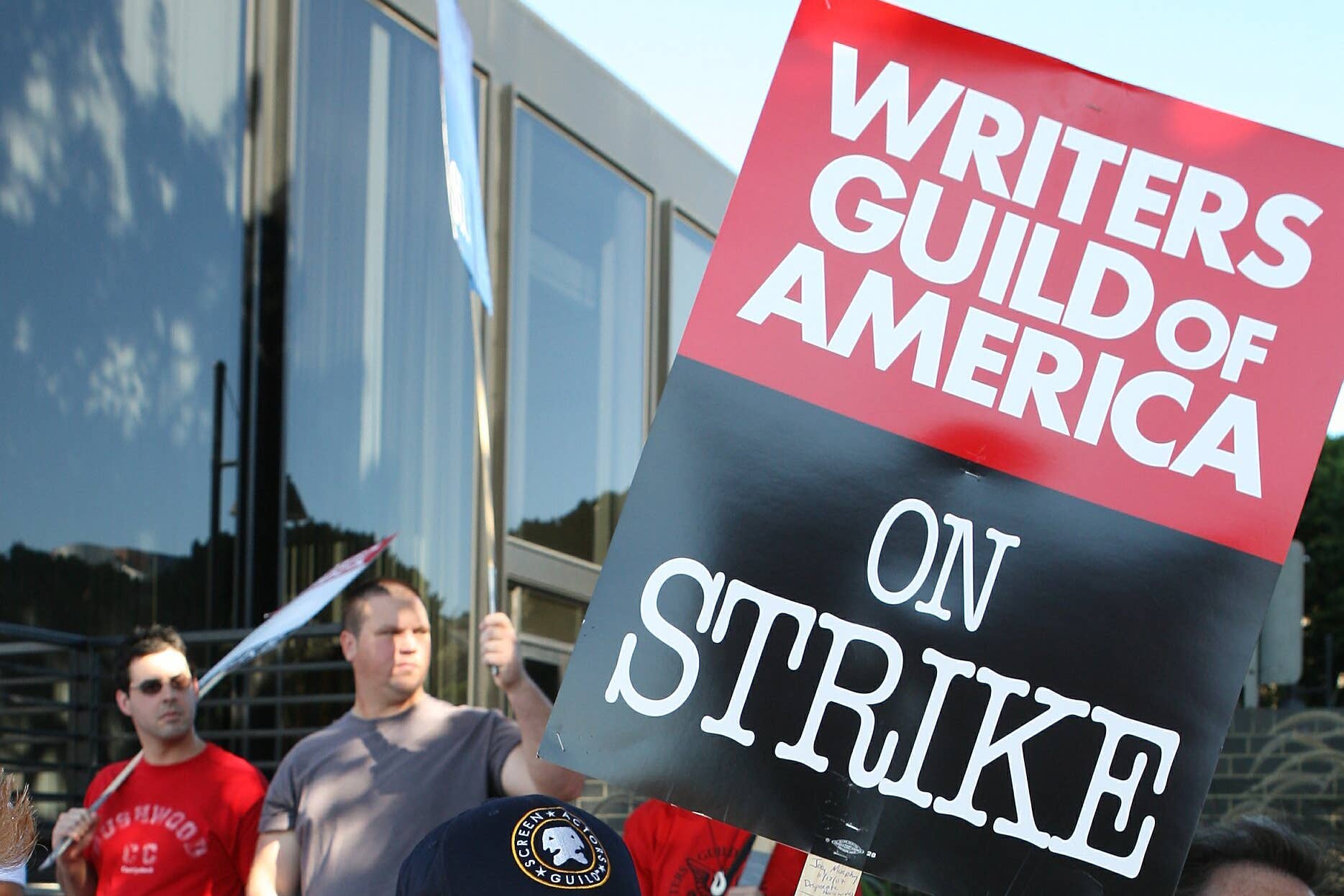Writers Guild of America calls off strike after backing agreement
The terms of the new contract were approved by the guild’s governing bodies.

Writers have agreed to call off strikes after board members approved a contract agreement with Hollywood studio bosses.
The Writers Guild of America (WGA) announced it had voted to accept the deal with the Alliance of Motion Picture and Television Producers (AMPTP), the group which represents studios, streaming services and producers in negotiations, after nearly five months on the picket line.
In tweets from its eastern and western branches, the WGA said: “The WGA reached a tentative agreement with the AMPTP. Today, our Negotiating Committee, WGAW Board, and WGAE Council all voted unanimously to recommend the agreement. The strike ends at 12.01am.”
Late-night talk shows are likely to be the first shows that will resume.
The writers still have to vote to ratify the contract themselves, but lifting the strike will allow them to work during that process, the Writers Guild told members in an email.
After Tuesday’s board votes, the contracts were released to the writers who had not yet been given any details on the deal, which their leaders called “exceptional”.
The three-year agreement includes significant wins over compensation, length of employment, size of staffs and control of artificial intelligence (AI).
The union had sought minimum increases in pay and future residual earnings of between 5% and 6%, depending on the position of the writer, while the studios had wanted between 2% and 4%. The compromise deal was a raise of between 3.5% and 5%.
The guild also negotiated new residual payments based on the popularity of streaming shows, where writers will get bonuses for being a part of the most popular shows – a proposal studios initially rejected.
The writers also got the requirement they sought that shows intended to run at least 13 episodes will have at least six writers on staff, with the numbers shifting based on the number of episodes.
They did not get their desire for guaranteed staffs of six on shows that had not yet been ordered to series, settling instead for a guaranteed three.
Writers also got a guarantee staff on shows in initial development will be employed for at least 10 weeks and those on shows which go to air will be employed for three weeks per episode.
On AI, the writers got the regulation and control of the emerging technology they had sought.
Under the contract, raw, AI-generated storylines will not be regarded as “literary material” which means they will not be competing with computers for screen credits. Nor will AI-generated stories be considered “source” material.
Writers have the right under the deal to use AI in their process if the company they are working for agrees and other conditions are met. But companies cannot require a writer to use AI.
The members will vote between October 2 and 9.
Since May 2, more than 11,000 WGA members have been on strike over issues including pay and the threat of artificial intelligence.
However, this does not mean that Hollywood stars will be back at work as talks have not yet resumed between studios and striking actors who are part of Sag-Aftra (the Screen Actors Guild-American Federation of Television and Radio Artists).
While writers’ picket lines have been suspended, they were encouraged to walk in solidarity with actors, and many were on the lines Tuesday, including Mad Men creator Matthew Weiner.
“We would never have had the leverage we had if SAG had not gone out,” Weiner said. “They were very brave to do it.”
Bookmark popover
Removed from bookmarks